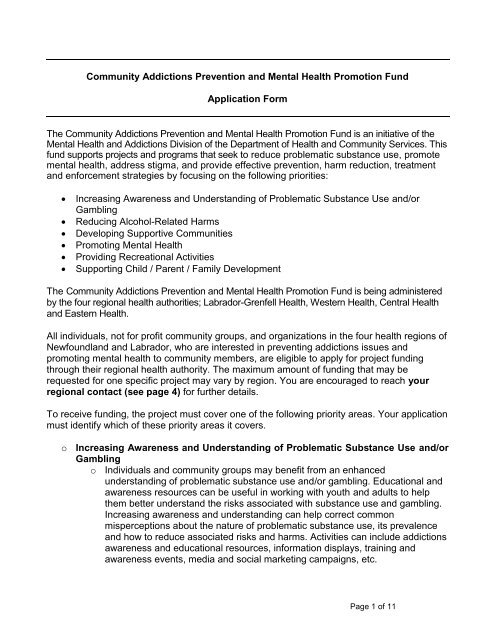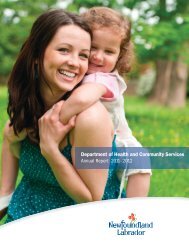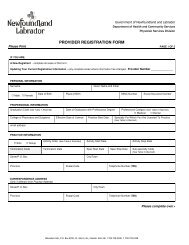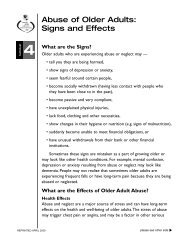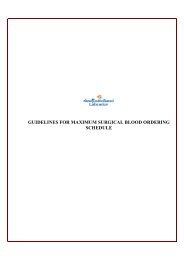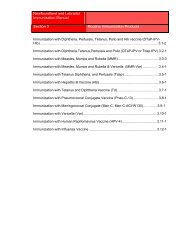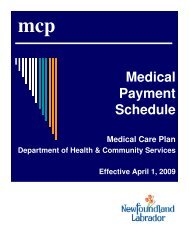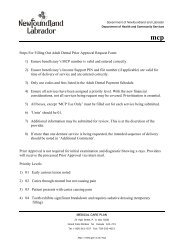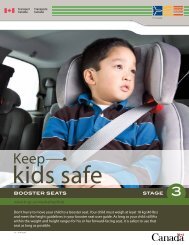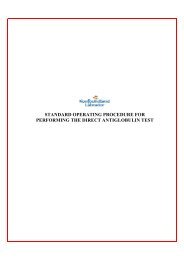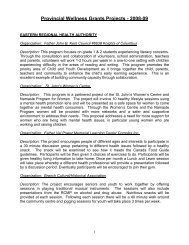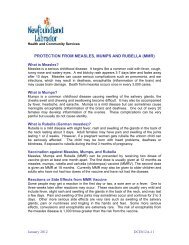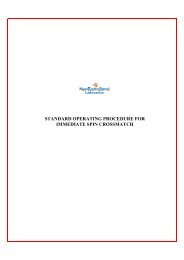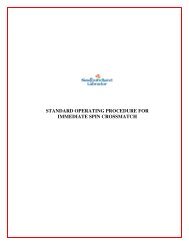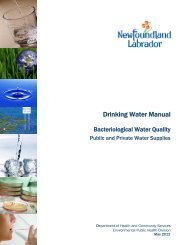Community Addictions Prevention and Mental Health Promotion Fund
Community Addictions Prevention and Mental Health Promotion Fund
Community Addictions Prevention and Mental Health Promotion Fund
- No tags were found...
Create successful ePaper yourself
Turn your PDF publications into a flip-book with our unique Google optimized e-Paper software.
<strong>Community</strong> <strong>Addictions</strong> <strong>Prevention</strong> <strong>and</strong> <strong>Mental</strong> <strong>Health</strong> <strong>Promotion</strong> <strong>Fund</strong>Application FormThe <strong>Community</strong> <strong>Addictions</strong> <strong>Prevention</strong> <strong>and</strong> <strong>Mental</strong> <strong>Health</strong> <strong>Promotion</strong> <strong>Fund</strong> is an initiative of the<strong>Mental</strong> <strong>Health</strong> <strong>and</strong> <strong>Addictions</strong> Division of the Department of <strong>Health</strong> <strong>and</strong> <strong>Community</strong> Services. Thisfund supports projects <strong>and</strong> programs that seek to reduce problematic substance use, promotemental health, address stigma, <strong>and</strong> provide effective prevention, harm reduction, treatment<strong>and</strong> enforcement strategies by focusing on the following priorities:Increasing Awareness <strong>and</strong> Underst<strong>and</strong>ing of Problematic Substance Use <strong>and</strong>/orGamblingReducing Alcohol-Related HarmsDeveloping Supportive CommunitiesPromoting <strong>Mental</strong> <strong>Health</strong>Providing Recreational ActivitiesSupporting Child / Parent / Family DevelopmentThe <strong>Community</strong> <strong>Addictions</strong> <strong>Prevention</strong> <strong>and</strong> <strong>Mental</strong> <strong>Health</strong> <strong>Promotion</strong> <strong>Fund</strong> is being administeredby the four regional health authorities; Labrador-Grenfell <strong>Health</strong>, Western <strong>Health</strong>, Central <strong>Health</strong><strong>and</strong> Eastern <strong>Health</strong>.All individuals, not for profit community groups, <strong>and</strong> organizations in the four health regions ofNewfoundl<strong>and</strong> <strong>and</strong> Labrador, who are interested in preventing addictions issues <strong>and</strong>promoting mental health to community members, are eligible to apply for project fundingthrough their regional health authority. The maximum amount of funding that may berequested for one specific project may vary by region. You are encouraged to reach yourregional contact (see page 4) for further details.To receive funding, the project must cover one of the following priority areas. Your applicationmust identify which of these priority areas it covers.o Increasing Awareness <strong>and</strong> Underst<strong>and</strong>ing of Problematic Substance Use <strong>and</strong>/orGamblingo Individuals <strong>and</strong> community groups may benefit from an enhancedunderst<strong>and</strong>ing of problematic substance use <strong>and</strong>/or gambling. Educational <strong>and</strong>awareness resources can be useful in working with youth <strong>and</strong> adults to helpthem better underst<strong>and</strong> the risks associated with substance use <strong>and</strong> gambling.Increasing awareness <strong>and</strong> underst<strong>and</strong>ing can help correct commonmisperceptions about the nature of problematic substance use, its prevalence<strong>and</strong> how to reduce associated risks <strong>and</strong> harms. Activities can include addictionsawareness <strong>and</strong> educational resources, information displays, training <strong>and</strong>awareness events, media <strong>and</strong> social marketing campaigns, etc.Page 1 of 11
o Reducing Alcohol-Related Harmso Despite real concerns about the harms of illicit drug use, alcohol remains themain drug of choice for most adults <strong>and</strong> youth in this Province. Alcoholconsumption can result in fatalities <strong>and</strong> serious injury through motor vehiclecollisions, violence, <strong>and</strong> other risk taking behaviors. Youth <strong>and</strong> adults whoengage in binge drinking patterns put themselves at extreme risk which canresult in serious harm to themselves or others. Among other things, activities tohelp reduce alcohol-related harms may include impaired driving preventionprograms, enforcement of minimum legal drinking age restrictions, alcoholserver intervention training, <strong>and</strong> awareness programs to prevent <strong>and</strong> reduce therisks <strong>and</strong> harms associated with alcohol use.Developing Supportive Communitieso There is a need for communities to mobilize <strong>and</strong> work together to preventaddictions, promote positive mental health, <strong>and</strong> improve the health of thecommunity. Individuals can come together to make their communities ones inwhich healthy choices are easier to make <strong>and</strong> are supported by theenvironment around them. Communities can help create supportiveenvironments by giving attention to community policies <strong>and</strong> processes thatsupport health <strong>and</strong> reduce risky patterns of substance use or poor mentalhealth. Specific activities may include: community youth programs, volunteer<strong>and</strong> civic engagement opportunities, alcohol <strong>and</strong> drug free community events<strong>and</strong> activities, <strong>and</strong> youth mentoring <strong>and</strong> leadership programs.Promoting <strong>Mental</strong> <strong>Health</strong>o Promoting positive mental health on a population/community level is animportant component of mental health promotion. Components of positivemental health include the ability to enjoy life, dealing with life events, the abilityto experience <strong>and</strong> regulate emotions, maintaining spiritual values <strong>and</strong> a senseof spirituality <strong>and</strong>/or meaning, social connections <strong>and</strong> respect for culture, equity,social justice, <strong>and</strong> personal dignity. <strong>Mental</strong> health promotion is about enhancingthe capacity of individuals <strong>and</strong> communities to take greater control over theirlives <strong>and</strong> improve their mental health. Specific activities may include:awareness resources around positive mental health, skill building sessions tosupport problem solving <strong>and</strong> emotional coping, programs or groups to supportor enhance social connections, <strong>and</strong> programs to support work-life balance, antiviolence<strong>and</strong> discrimination, <strong>and</strong> access to economic resources.o Providing Recreational Activitieso An important protective factor indicated by youth is the need for alternativeactivities, flexible programming, <strong>and</strong> after school programs. People incommunities often indicate that lack of social networking, groups orassociations is problematic <strong>and</strong> can lead to unhealthy behaviours. Activitiesfocused on recreation <strong>and</strong> leisure are important elements of substance useprevention <strong>and</strong> mental health promotion. Providing opportunities for communitymembers to come together on a regular basis allows individuals to interact <strong>and</strong>create a sense of belonging without engaging in potentially harmful activities.Specific activities may include but are not exclusive to: sports events/teams,Page 2 of 11
games nights, book clubs, walking clubs, drama, writing, painting, <strong>and</strong>/or youthnights.o Supporting Child / Parent / Family Developmento Families play a vital role in the development of healthy children <strong>and</strong> youngadults. Parents can help shape <strong>and</strong> promote positive mental health in theirchildren <strong>and</strong> provide a strong foundation to help prevent risky behaviors suchas problematic substance use or gambling. Parent education, support <strong>and</strong>family skill building programs can play an important role in supporting parents<strong>and</strong> families. Early childhood programs, parenting education <strong>and</strong> supportgroups, <strong>and</strong> family skill based programs are all examples of specific activitiesthat can support parent <strong>and</strong> family skill building.Applications can be h<strong>and</strong>-written or typed.Application GuidelinesThe application form must be fully completed; incomplete applications will not be considered.A budget, outlining all associated costs of the project / program is required.Eligible expenses include but are not limited to: Honoraria, speaking fees, travel <strong>and</strong> expenses for resource people will be consideredon a case by case basis <strong>and</strong> must clearly demonstrate sustainability inproject/program enhancement, skill building or community development Meals, travel or accommodations for participants or community members Resource material (e.g. educational / instructional materials) Advertising, publicity, printing Purchase of small recreational activity materials/equipmentIneligible expenses include: Contributions to annual fundraising drives Core operating expenses (e.g. heat, light, staff, etc.) Capital expenditures (e.g. building renovations, office furniture, etc.) Projects which are a clear duplication of existing activities in your community. Individual scholarships or bursaries Membership feesAll successful funding recipients are required to return a completed activity tracking form(provided by your regional health authority) <strong>and</strong> receipts upon completion of the project thatwas funded.Deadlines for Grant Applications will be announced by each regional health authority.Page 3 of 11
Please send applications to the contact in your region:Labrador-Grenfell <strong>Health</strong>:Tina CoombsRegional <strong>Addictions</strong> <strong>Prevention</strong>/<strong>Mental</strong> <strong>Health</strong> <strong>Promotion</strong> Consultant<strong>Mental</strong> <strong>Health</strong> <strong>and</strong> <strong>Addictions</strong>Charles Curtis Hospital178-200 West StreetLabrador Grenfell <strong>Health</strong>St. Anthony, NL A0K 4S0Tel: 709 454-0521Fax: 709 454-4041Email: tina.coombs@lghealth.caWestern <strong>Health</strong>:Regional <strong>Addictions</strong> <strong>Prevention</strong> Consultant<strong>Mental</strong> <strong>Health</strong> & Addiction ServicesWestern <strong>Health</strong>133 Riverside Drive, P.O. Box 2005Corner Brook, NL A2H 6J7Tel: (709) 634-4921 / 634-4171Fax: (709) 634-4888Central <strong>Health</strong>:Lauren JosselynRegional <strong>Addictions</strong> <strong>Prevention</strong> Consultant<strong>Mental</strong> <strong>Health</strong> <strong>and</strong> <strong>Addictions</strong> ServicesGr<strong>and</strong> Falls- Windsor <strong>Community</strong> <strong>Health</strong> Building50 Union StreetGr<strong>and</strong> Falls-Windsor A2A 2E1Tel. (709) 489-4389Fax. (709) 489-8182E-mail: lauren.josselyn@centralhealth.nl.caEastern <strong>Health</strong>:Wayne Bishop<strong>Addictions</strong> <strong>Prevention</strong> Consultant<strong>Mental</strong> <strong>Health</strong> & <strong>Addictions</strong> ServicesEastern <strong>Health</strong>38 Ropewalk Lane P.O. Box 13122St. John's, NL A1B 4A4Tel. (709) 752-4030Fax. (709) 777-5170Tracey Sharpe-SmithRegional <strong>Addictions</strong> <strong>Prevention</strong> Consultant<strong>Mental</strong> <strong>Health</strong> <strong>and</strong> <strong>Addictions</strong> ServicesEastern <strong>Health</strong>, Rural Avalon & PeninsulasHr. Grace, NL(709) 596-2485Page 4 of 11
<strong>Community</strong> <strong>Addictions</strong> <strong>Prevention</strong> <strong>and</strong> <strong>Mental</strong> <strong>Health</strong> <strong>Promotion</strong> <strong>Fund</strong>Application FormSECTION 1: APPLICANT INFORMATION – PLEASE FILL IN ALL FIELDSApplicant(s):Date:Agency or Committee Name:Brief Description of Agency or Committee:Contact Information:Name:Address:Telephone #:Fax #Email:SECTION 2: PROJECT DESCRIPTIONProject/Program Name:Brief Description of Project/Program:Total AmountRequested:Priority Areas Covered: (please check all that apply) Increasing Awareness <strong>and</strong> Underst<strong>and</strong>ing of Problematic Substance Use Reducing Alcohol-Related Harms Developing Supportive Communities Promoting <strong>Mental</strong> <strong>Health</strong> Providing Recreational Activities Supporting Child / Parent / Family DevelopmentPage 5 of 11
Project DetailsWho?Target Population: Who is the project/program for?What is the total number of people expected to take part for the duration of the project,program, or event?Partnerships: What partnerships do you already have or plan to make in order to makethis project work?What?What is the project about? Please give a detailed description, including a statementabout how this project/program/event will enhance current prevention/promotionprogramming currently being offered through your agency or in your community.SustainabilityHow will this project build lasting skills among participants? Please explain.Why?Why do you want to do this project (what is your main goal) <strong>and</strong> how does it meet aneed?Page 6 of 11
When?Project start date:Project finish date:Project Work PlanPlease indicate all the steps you will take to conduct this project. Please include who willbe responsible for each step, <strong>and</strong> the expected timeline for each activity.Activity Person Responsible TimelineEvaluation PlanHow are you going to determine if this project has been a success? Please outline yourgoals, actions, expected outcomes, <strong>and</strong> measurement of expected outcomes.Goals = Final outcome you want to achieveActions = How are you going to achieve your goal?Expected outcomes = What do you hope to achieve from the action?Measurement of expected outcomes = How are you going to measure theoutcomes? (# of participants, feedback forms, pre-test/post-tests, etc)Page 7 of 11
An example of an evaluation plan:Goal: Increase awareness of harms of alcohol useActions Expected Outcomes Measurement ofOutcomesHold a workshopeducating on the harms ofalcohol use.Participants will have anincreased knowledge ofthe harms associated withalcohol use.Have participants fill out aquestionnaire before <strong>and</strong>after the session to gaugetheir knowledge on theharms of alcohol use.If you have any questions about the evaluation plan, please contact your regionalconsultant from page 4.GOAL:Evaluation Plan TableActions Expected Outcomes Measurement of OutcomesGOAL:Actions Expected Outcomes Measurement of OutcomesPage 8 of 11
GOAL:ActionsExpected OutcomesPage 9 of 11
SECTION 3: COSTSPlease list all items you require, costs, <strong>and</strong> other sources of funding you may beable to use if this fund cannot cover all items. Please be specific with all itemslisted.Item Details Estimated CostRequestedin currentapplicationSmallhonoraria forvolunteersProvidedfromanothersourceEquipmentTravel forparticipants(E.g. # oftaxis x $____ x # oftrips = $;cost for busfor 30participants)Room/SpaceRentalMaterialsE.g. programmanuals,mocktailsupplies,arts <strong>and</strong>crafts,journals,etc…)Page 10 of 11
Food(E.g. # ofparticipantsx $ ____ x $---- = $ ____;nutritionbreaksupplies:fruit tray $____, water$ ____,etc…)OtherTotalOther <strong>Fund</strong>ing Requested or ReceivedHave you requested funding from any other source? If yes, please specify all potentialfunding sources.Have you received funding from any other source, or do you have access to any in-kindfunding? If yes, please specify amount <strong>and</strong> source of funding.For Office Use Only:Application Received By:Date:Application Reviewed By:Date:Application Approved By:Date:Amount Awarded:Page 11 of 11


